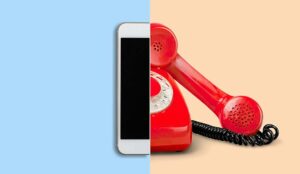Millennials are one of the most discussed, most researched, and often most maligned generations in history. But today they also make up 35% of the American workforce, and it’s important for contact centre leaders to understand who they are, what they want, and how best to manage them.
Millennials were born between 1981 and 1996, ranging in age from 25 to 40 in 2021. While this generation is in varying stages of life, they still share many common characteristics you should keep in mind.
- Millennials are a highly educated generation. Nearly 40% have some college or a college degree.
- They want employers to value them as people, not just workers. Both younger and older Millennials said that an organization that cares about their well-being was the top factor they looked for in an employer, even before the pandemic.
- On a closely related note, Millennials are ready to move on if they are dissatisfied with their job. Twenty-five percent of those who changed jobs last year were Millennials — a third were Gen Z.
Millennial Stereotypes in the Workplace
Millennials are lazy. Entitled. Self-absorbed. They need a medal just for showing up. Most people have heard one or more of these Millennial workplace stereotypes. Unfortunately, these assumptions can damage relationships within your team and hamper your success if left unchecked.
Take, for example, a study by Harvard Business Review. Researchers asked groups of young, middle-aged, and older workers to list qualities to describe the other age groups (stereotypes), as well as qualities other age groups might use to describe them (meta-stereotypes).
While the stereotypes listed were a bit more negative for younger workers than older ones, the younger workers were actually much harder on themselves when listing their meta-stereotypes than the older groups were.
They believed the older groups would call them “unmotivated” or “irresponsible,” when in fact the qualities cited by the older groups were more mild judgements such as “inexperienced.”
Workplace expert and author Lindsey Pollak stresses that generational labels shouldn’t be used to stereotype but instead should be used to help co-workers understand how others are thinking.
“It’s important to take a step back and realize that everyone’s perspectives and interpretations are shaped by the times and places in which we grow up,” Pollak writes in her blog. “By studying generations, we can understand where people are coming from. That’s empathy.”
To nip Millennial workplace stereotypes — as well as negative assumptions about other generations — in the bud, make a concerted effort to keep your agents’ relationships with each other positive. Find ways to highlight the strengths of the different generations on your team and encourage agents to try to give their co-workers the benefit of the doubt.
Importance of Millennials in the Workplace
Most Millennial stereotypes are just strengths in disguise and cast a shadow on how Millennials are changing the workplace. What older generations in your contact centre might perceive as lazy is more likely a deep understanding of how to use technology to accomplish tasks faster with less effort.
If others see Millennials in the workplace as entitled or self-centred, they might be mistaking what is actually a drive for better outcomes. And needing a medal for just showing up? Everyone likes to be recognized for their efforts and achievements — and Millennials are no different than anyone else.
Managing Millennials in the workplace doesn’t require the constant hand-holding that memes and articles might have you believe. Millennial behaviours and values can be big pluses in your contact centre.
They Love to Collaborate
This generation grew up working in teams at school and recreationally.
In fact, they’ll find ways to work together to get things done even if you don’t provide the technology to do it — a 2019 study found Millennials were 1.5 more likely to use unauthorized collaboration technology at work than other generations.
They’re Digital Natives
Why deny Millennial agents the right technologies in the contact centre when they’re such naturals with it? The youngest Millennials don’t remember a time without technology at their disposal, and older ones have likely never been in a workplace without digital tools to get things done.
They’re Always Looking for Opportunities to Grow
More than half (59%) of Millennial job seekers reported that a chance to learn and grow was extremely important to them, while only 44% of Gen X and 41% of Baby Boomer respondents said the same.
Harness that enthusiasm and find ways for them to achieve new things in your contact centre.
Working With Millennials in a Contact Centre
Finding the right approach for training, communicating with, and motivating Millennial contact centre agents requires you to understand their needs and make sure they stay engaged.
Take delivering feedback, for instance. Millennials want to hear it, but they don’t always know how to get it from you. A Gallup poll revealed that while 61% of Millennials say they have regular meetings with their manager, only 19% say they routinely get feedback about how they’re doing, and only 15% ask for it.
Millennials want to hear ongoing updates on their performance. They don’t want to wait for a monthly, quarterly, or (even worse) annual review. Keep them up to date regularly on their progress — don’t make them worry whether they’re doing well or need to work on a few things.
One way to make sure you’re delivering performance feedback regularly is to turn to a solution that can identify and measure the most important KPIs for your organization and lets you take a holistic view of customer service operations.
The right tool will automatically give agents continuous feedback based on their results, so they’re never left wondering how they’re doing.
Understanding Your Millennial Team Members
There’s a lot more to learn about managing Millennials in the workplace, including the best ways to motivate, train and communicate with them.
Knowing how will help you work better as a team with all your agents, foster healthier workplace relationships, and, in the end, see improvements in your business.
Author: Guest Author
Published On: 11th Jan 2022 - Last modified: 30th Jan 2023
Read more about - Guest Blogs, Playvox















